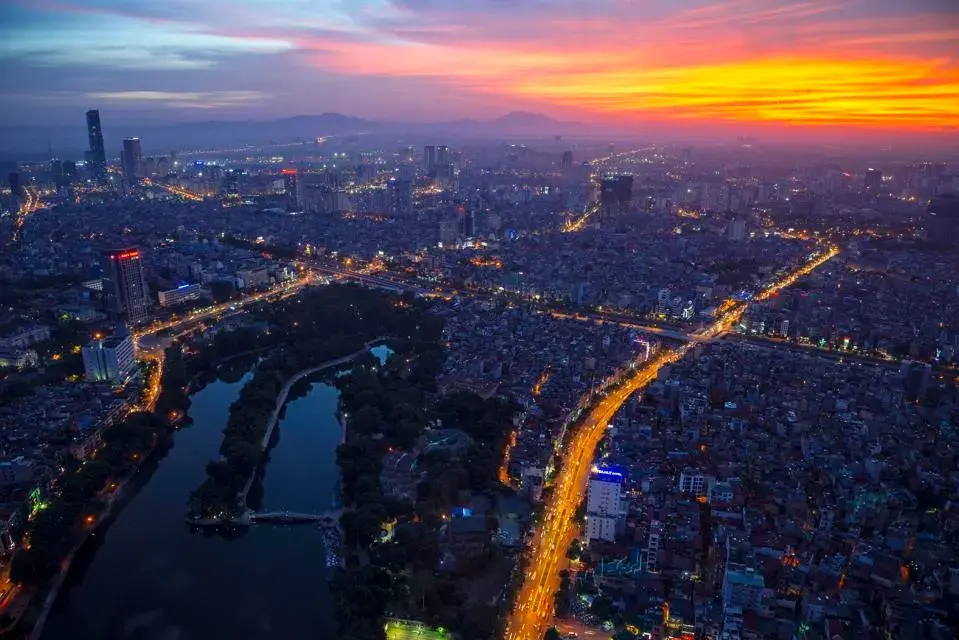As global tensions between the United States and China continue to simmer, Vietnam has emerged as a significant economic player, skillfully navigating these geopolitical challenges to fuel its own growth. A recent visit to Vietnam, highlighted by the Vietnam Venture Summit 2023 in Hanoi, showcased the country’s dynamic economic environment and its strategic efforts to capitalize on the global shift away from China-centric supply chains.
Vietnam’s Strategic Diplomacy and Economic Resilience
Vietnam has adeptly employed what is known as “bamboo diplomacy” to balance its relationships with both the West and China. This approach, enshrined in the nation’s “Four No’s” policy—no military alliances, no picking sides in conflicts, no foreign military bases, and no use of force in international relations—has allowed Vietnam to maintain positive ties with its largest trading partner, China, while also strengthening its relations with Western countries.
This diplomatic strategy has been complemented by substantial investments in education and infrastructure, as well as policies aimed at removing barriers to foreign investment. Vietnam offers industrial wages that are about half as high as those in China, making it an attractive destination for multinational corporations looking to diversify their supply chains. Furthermore, Vietnam has negotiated free trade agreements with 15 nations, enabling it to integrate into regional supply chains without incurring tariffs.
A Magnet for Multinational Manufacturing
Vietnam’s favorable business environment has attracted significant foreign direct investment (FDI), with FDI reaching a new record in 2023—a 54% increase to $15.3 billion in the first ten months of the year. This surge in investment comes at a time when China reported negative FDI for the first time since opening its economy post-COVID-19.
Major global corporations have established a strong presence in Vietnam. Samsung, for example, employs 200,000 people in the country and has invested $17 billion in facilities to produce smartphones and other devices. Foxconn Technology assembles Apple’s MacBooks in Vietnam and has recently announced plans to build a facility for electric vehicle chargers. During President Biden’s visit to Vietnam, several major companies, including Nvidia, Microsoft, Synopsys, and Marvell Technology, announced new partnerships and investments in the country.
Preparing for the Global Stage
While Vietnam has successfully positioned itself as a key manufacturing hub, achieving long-term prosperity will require attracting more substantial foreign capital to support its domestic companies. However, Vietnam’s financial markets are still relatively immature, posing challenges for global investors. Vietnam’s stock exchanges in Ho Chi Minh City and Hanoi are classified as frontier markets, making them off-limits to many global investors and family offices. To upgrade to the emerging markets category, Vietnam would need to lift restrictions on foreign ownership percentages.
The recent listing of Vietnam’s electric vehicle manufacturer, VinFast, on NASDAQ through a SPAC merger, has opened the door for more Vietnamese companies to seek global recognition. VinFast’s successful listing could pave the way for other prominent Vietnamese companies to follow suit.
One such company is VNG, Vietnam’s leading video game company and the owner of the popular Zalo messaging app. VNG had planned a $150 million U.S. IPO in 2023 but postponed it in hopes of more favorable market conditions in 2024. Other companies reportedly considering future overseas IPOs include The CrownX, Vietnam’s largest retail company, and Momo, a payment app with 30 million users.
Tapping Into Vietnam’s Talent
Vietnam’s aspirations extend beyond being a manufacturing hub. The country aims to become a technologically advanced and sustainable economy, striving to achieve upper-middle-income status by 2030. Vietnam’s legislature has set a target for GDP growth of 6% to 6.5% in 2024, with its digital economy expected to grow at 20% annually, reaching $45 billion by 2025.
Achieving these ambitious goals will require tapping into the abundant energy and drive of young Vietnamese entrepreneurs. The Vietnam Venture Summit 2023 showcased a new generation of entrepreneurs eager to learn, innovate, and start businesses that can put Vietnam on the global map. These young leaders are optimistic, well-educated, and ready to take risks, embodying the spirit that could propel Vietnam to new economic heights.
While central planning can effectively build infrastructure and provide worker training, it is the innovation and entrepreneurial spirit of the private sector that will ultimately determine Vietnam’s economic future. The country’s next generation appears ready to seize this moment, with a clear vision of turning Vietnam into a globally recognized economic powerhouse.
Conclusion
Vietnam’s rise as a key player in the global economy is a testament to its strategic diplomacy, favorable business environment, and the energy of its young entrepreneurs. As U.S.-China tensions persist, Vietnam’s ability to attract multinational investment and foster domestic innovation positions it as a significant beneficiary of the global shift in economic dynamics. With continued focus on growth and development, Vietnam’s economic ascent is only just beginning.













